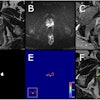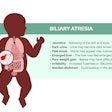Hundreds of women with breast cancer living in England's most deprived areas would have better survival rates if they were diagnosed at the same stage as those who lived in affluent areas, according to a new study published online on 29 April in the International Journal of Cancer.
Lead author Dr. Mark Rutherford of the University of Leicester and colleagues investigated how much of a difference late-stage diagnosis had on women from deprived areas. The group used data from the Eastern Cancer Registry, and calculated how many deaths would be postponed beyond five years from diagnosis if as many women in the more deprived areas were diagnosed at an earlier stage as those in most affluent areas (IJC, 18 April 2013).
Rutherford's team found that for a typical yearly cohort of breast cancer patients in England, 450 deaths could have been postponed beyond five years of diagnosis if the stage distribution for all women matched that of the most affluent women.
"Being diagnosed with earlier-stage disease has a significant impact on survival chances," Rutherford said in a statement released by the University of Leicester. "It is clear from the results of the study that women from more deprived areas are more likely to be diagnosed with advanced-stage disease. Removing these deprivation inequalities in stage at diagnosis can substantially reduce the number of deaths in the short term for more deprived women."



















